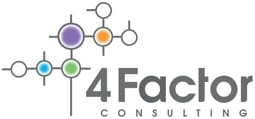This morning the NRC published in the Federal Register a notice of Receipt of Application for License for the GLE operation at GE-Hitachi’s Wilmington, NC facility. This is exciting news for the industry as it is yet another step toward getting additional enrichment capability online and ready to deliver more enriched uranium to the nuclear power plants around the world.
The NRC has committed to a 30 month review and approval cycle for this application. While aggressive, the NRC has in recent years had a policy of setting the schedule based upon best case scenarios. GE-Hitachi has not had an outstanding track record in meeting their obligations in order to keep to these schedules, but by setting aggressive deadlines, it does encourage quick, high-quality responses.
The next major milestone is the 60 day deadline for petitions to intervene. The anti-nuclear crowd is already lining up their claims to gain official status as “intervenors” in this process. The so-called “Friends of Earth” chapter in South Carolina is making noises regarding anti-proliferation and this enrichment facility. I was unable to find much information regarding their intent beyond an article in the local paper.
The most interesting reading in the Federal Register is, however, the two additional comments made by Chairman Jaczko and Commissioners Klein and Svinicki respectively (see page 1828 in the linked document). Mr. Jaczko seems to take delight in painting the entire industry based upon single examples from his limited experiences. In this case, he is using a single issue from Areva’s licensing efforts to castigate HIS OWN AGENCY for setting schedules too aggressively. He does not seem to have examined their track record in ensuring thorough reviews and high quality documentation. Apparently, schedule is the only yardstick by which one can measure these things. He has also decided to equate the construction of enrichment facilities with the construction of nuclear power plants and to claim that the licensing and construction process should be handled identically.
In contrast Mr. Klein and Ms. Svinicki support the agency’s efforts to perform timely and competent reviews and acknowledge the differences in both risk and complexity between these facilities.
Having worked with the NRC on a number of issues over a number of years, I can state unequivocally that the staff at the NRC would never short-cut a review simply to meet a schedule, but by setting some aggressive targets, they help both their own inertia and that of the applicant to keep the work moving forward. I do believe that the NRC has need of some serious self-examination with regard to the training and oversight of the staff. At the winter ANS meeting, Mr. Jaczko commented that 50% of the staff has less than 5 years of experience. This lack of experience has resulted in some long and protracted reviews of what should have been fairly routine matters.
I hope Mr. Jaczko realizes soon that his role is not that of “chief complainer” and that he must take on the formidable task of actually running this agency efficiently and effectively. Perhaps it is his agenda to eliminate nuclear power as a viable source of carbon-free electricity. In which case, he may succeed.
